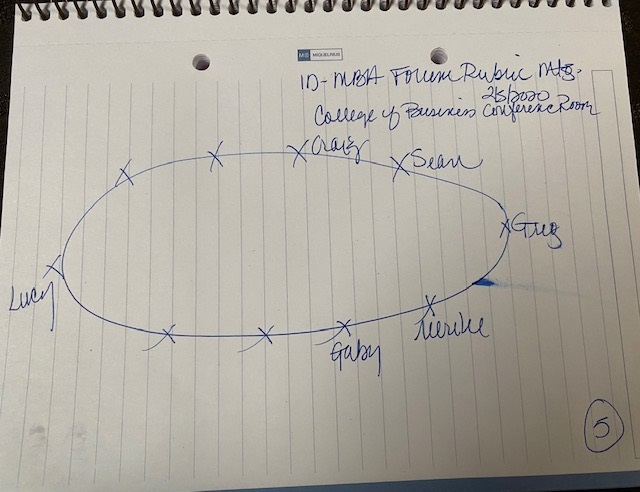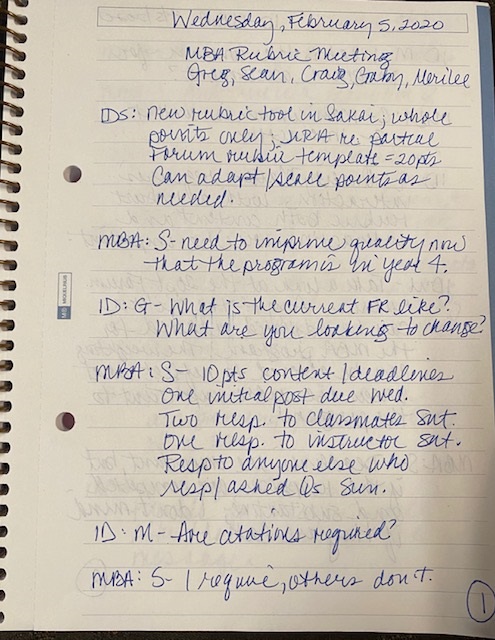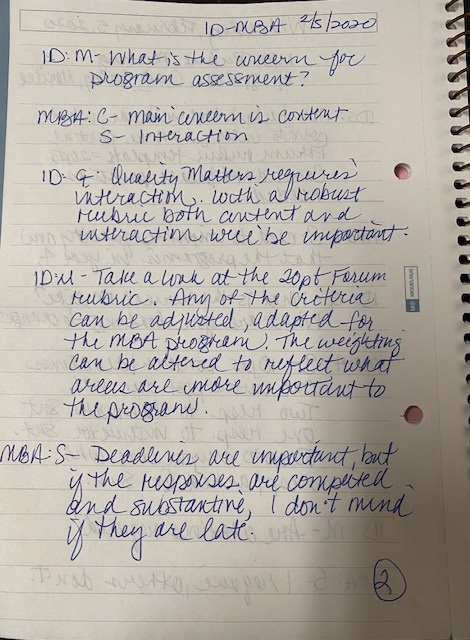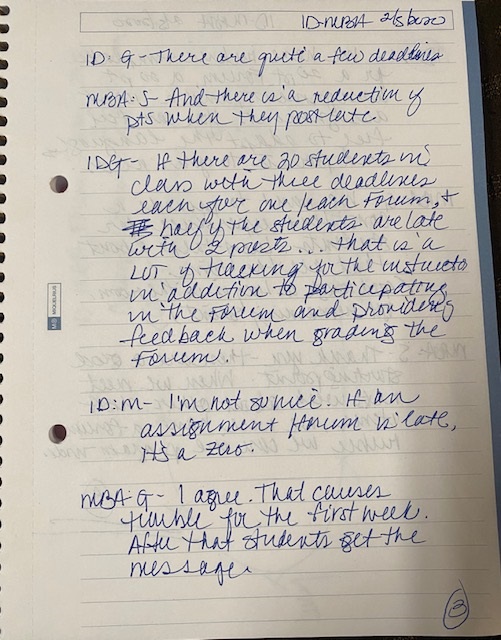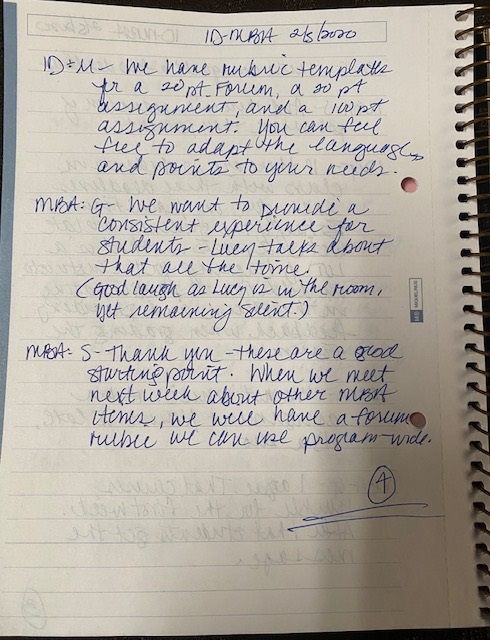Introduction
Direct Observation of MBA Forum Rubric Meeting
Wednesday, February 5, 2020 1:00 pm
West Liberty University College of Business conference room
Participants: Dean of College of Business, Director of MBA program, Assessment Coordinator, College of Business, 2 Instructional Designers
This meeting was arranged jointly by the MBA program director and the director of distance education. While the director of distance education requested a meeting to discuss many of the details of the online courses in the program, the MBA program director already had a meeting set with the Dean of the College of Business (CoB) and the Assessment Coordinator for the CoB to establish a rubric for forums to be used program-wide. Thus, an additional meeting to discuss the other course details will be held later. As the program is in its fourth year, the MBA program director and the director of distance education feel that it is time to refresh the original courses and to ensure consistency inasmuch as possible across the program.
The Meeting
The purpose of this meeting was for the instructional design team to present three rubric templates to online MBA stakeholders for use in the program. The Learning Management System used by the institution has just acquired a native rubric tool so it would be beneficial to use it in as many courses as possible. Custom rubrics can be created and the instructional design team has created three templates, a 20 point forum rubric, a 20 point assignment rubric, and a 100 point assignment rubric. The use of these specific rubrics is not required, however the use of some kind of rubric is required in online courses and is certainly a best practice in face to face courses.
No introductions were necessary as everyone involved has worked together for more than a year and are friendly in interactions. As I supervise the instructional design team, I explained to the MBA representatives that I would be observing only but that the ID team and I had several conversations leading up to this meeting. To begin the ID team asked some questions about the current rubric and what the MBA program faculty and leadership like about it and what they might like to change. There was discussion of requirements in specific courses and across the program. The ID team talked about the native rubric tool for Sakai and presented the three templates that are the initial effort in creating and using consistent rubrics.
There was discussion about how the forum rubric is used in the MBA program, about making changes, and the importance of a norming session as part of training to teach in the online MBA program after changes are made and before they are implemented. The MBA program director showed in the LMS how he is currently grading forums using the existing rubric. The field notes provide some details and data about discussion regarding point values, deadlines, and criteria used. There was a bit of debate about the number of deadlines and the value of using instructor time to track late submissions in addition to participating in the forum and providing individual feedback when grading.
My Hidden Obvious
In observing the MBA program director, I learned that he does not use the same sequence of activities I do when grading a forum. Neither is wrong; they are simply different. Because I use the LMS (Sakai) every day, I often move more quickly and have developed different workflows for grading and other processes. I also work with the design and development of online courses every day and have learned to be able to see the components of a course and a program and the higher level comprehensive view of both individually and the way they fit together.
Conclusion
While this observation was informal as I know the participants and have an interest in the content of the meeting, it was eye opening. For so much of my academic and professional life I have felt as if I must be physically doing something. This assignment gave me permission to just watch. To be silent. To observe my surroundings and see what happens when I am not involved. It was refreshing and I can see how this kind of data collection can be useful in qualitative research.
